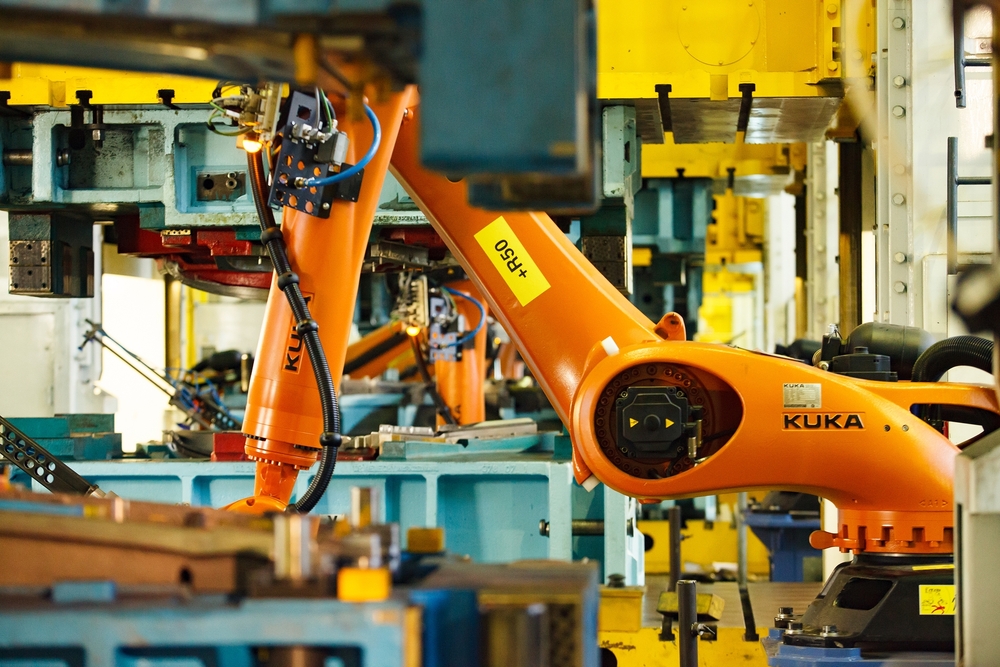The situation at the robot manufacturer Kuka in Augsburg is escalating. The planned job cuts are causing unrest, as more than 400 jobs could be lost at the plant. The industry is under massive pressure due to Asian competitors driving down prices. At the Swabian site, fears are growing that the job cuts could be far more extensive than previously announced. (merkur: 27.10.25)
Kuka workforce caught between unrest and uncertainty
A state of alarm has prevailed at the company’s headquarters in Augsburg for weeks. Many employees feel abandoned, while works council chairman Armin Kolb speaks of the worst atmosphere he has experienced in his 25-year career. He attributes this to the lack of transparency regarding the plant’s future. People are wondering what value creation the robotics manufacturer will still retain in Bavaria in the future.

As early as February, the previous management had decided to cut around 300 jobs in the robotics division and eliminate another 100 positions at the corporate headquarters. However, after several information sessions, the workforce anticipates a far greater number of job cuts. In the region, the plant is considered one of the most important employers in the manufacturing sector.
IG Metall criticizes Kuka management
IG Metall Augsburg is also dissatisfied. Union head Ferdije Rrecaj emphasizes that restructuring is necessary, but the approach of the company management goes beyond what is acceptable. Official discussions about the expanded job cuts have not yet begun, but scenarios for significantly deeper cuts are circulating internally.
New CEO Christoph Schell intends to proactively manage the transformation. In his podcast “Catch-up with Christoph,” he explains that more than the previously announced 400 jobs could be affected. He does not give an exact number but refers to the need to realign the company in order to become competitive again.
Investments in the Kuka-Augsburg site
Despite the planned savings, Schell announces investments in the Swabian location. Production is to be modernized, processes digitized, and new areas of expertise developed. Employees are talking about up to 70 million euros that could be invested in the site. The company has not officially confirmed this figure. At the same time, management is examining the possibility of relocating parts of the production to Hungary, where around 1,500 people already work for Kuka.
The company’s goal is to make Augsburg the center for large industrial robots. To this end, management is focusing on efficiency, automation, and future-oriented fields such as software and artificial intelligence. The robot manufacturer aims to secure its position in global competition in this way.
Global Price War Threatens Jobs
The industry is engaged in a fierce price war. Asian manufacturers are driving down margins, while Kuka, according to insiders, is facing additional annual costs of approximately 30 million euros. “The price level is incredibly low,” says Schell, describing the situation.
The company is profitable in China and the USA, but is struggling with losses in Europe. Around 20 percent of the company’s global workforce is located at the Augsburg site – a number that will be difficult to maintain without structural adjustments. The future of the robot manufacturer therefore depends crucially on cost reductions and innovations.
AI as an Opportunity for Kuka and the Industry
Despite the tense situation, Schell remains optimistic. His vision is for robots that independently recognize and perform tasks using AI, cameras, and sensors. This development could usher in a new era of manufacturing.
For Kuka, this opens up a perspective beyond the current job cuts. The CEO believes that innovation and automation can create new jobs if the company actively shapes the transformation. The industry is on the verge of a revolution – and Kuka wants to be among the pioneers.
